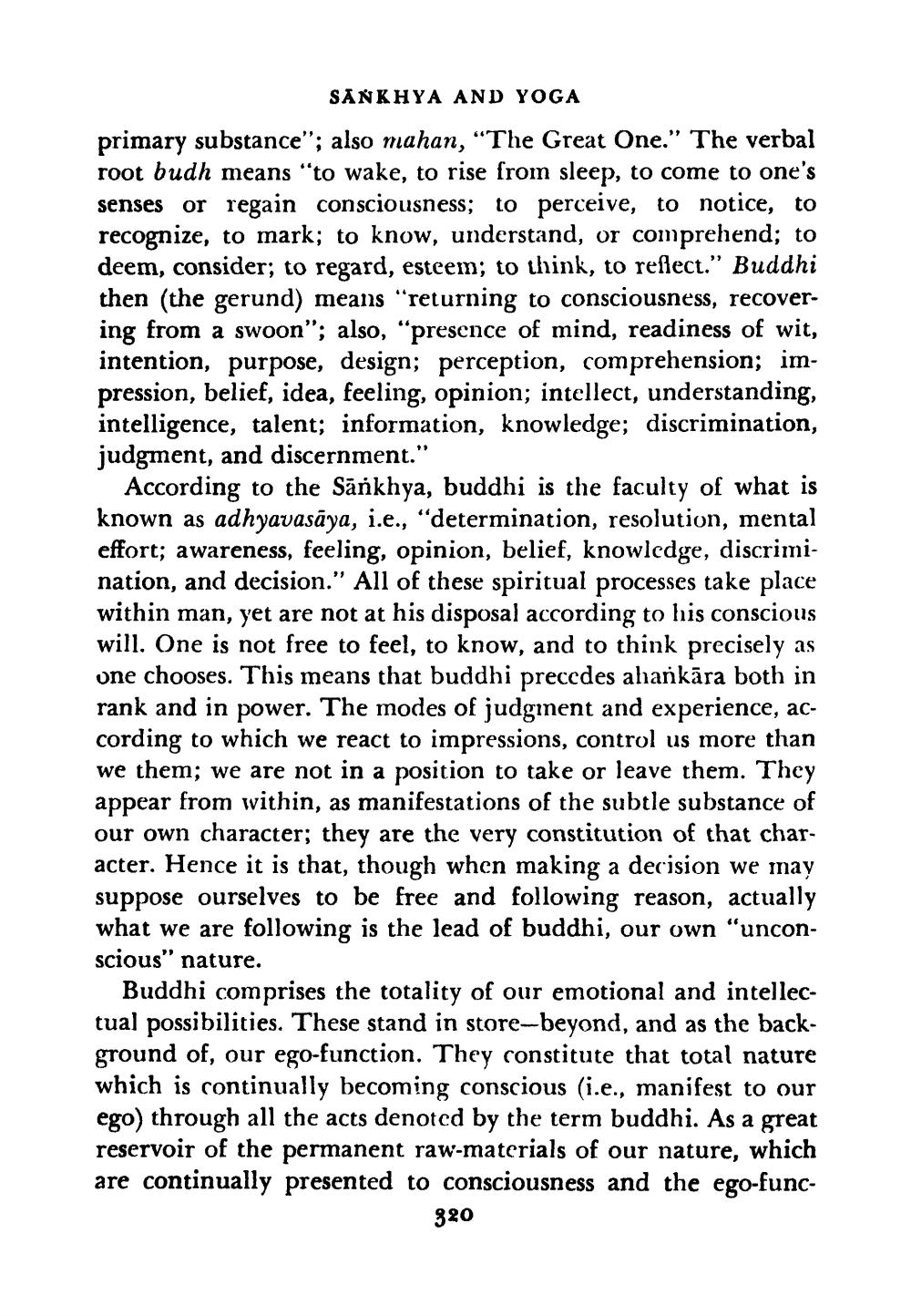________________
SANKHYA AND YOGA primary substance"; also mahan, "The Great One." The verbal root budh means "to wake, to rise from sleep, to come to one's senses or regain consciousness; to perceive, to notice, to recognize, to mark; to know, understand, or comprehend; to deem, consider; to regard, esteem; to think, to reflect.” Buddhi then (the gerund) means "returning to consciousness, recovering from a swoon"; also, "prescnce of mind, readiness of wit, intention, purpose, design; perception, comprehension; impression, belief, idea, feeling, opinion; intellect, understanding, intelligence, talent; information, knowledge; discrimination, judgment, and discernment."
According to the Sānkhya, buddhi is the faculty of what is known as adhyavasāya, i.e., "determination, resolution, mental effort; awareness, feeling, opinion, belief, knowledge, discrimination, and decision." All of these spiritual processes take place within man, yet are not at his disposal according to his conscious will. One is not free to feel, to know, and to think precisely as one chooses. This means that buddhi precedes ahankāra both in rank and in power. The modes of judgment and experience, according to which we react to impressions, control us more than we them; we are not in a position to take or leave them. They appear from within, as manifestations of the subtle substance of our own character; they are the very constitution of that character. Hence it is that, though when making a decision we may suppose ourselves to be free and following reason, actually what we are following is the lead of buddhi, our own "unconscious” nature.
Buddhi comprises the totality of our emotional and intellectual possibilities. These stand in store-beyond, and as the background of, our ego-function. They constitute that total nature which is continually becoming conscious (i.e., manifest to our ego) through all the acts denoted by the term buddhi. As a great reservoir of the permanent raw-materials of our nature, which are continually presented to consciousness and the ego-func
320




